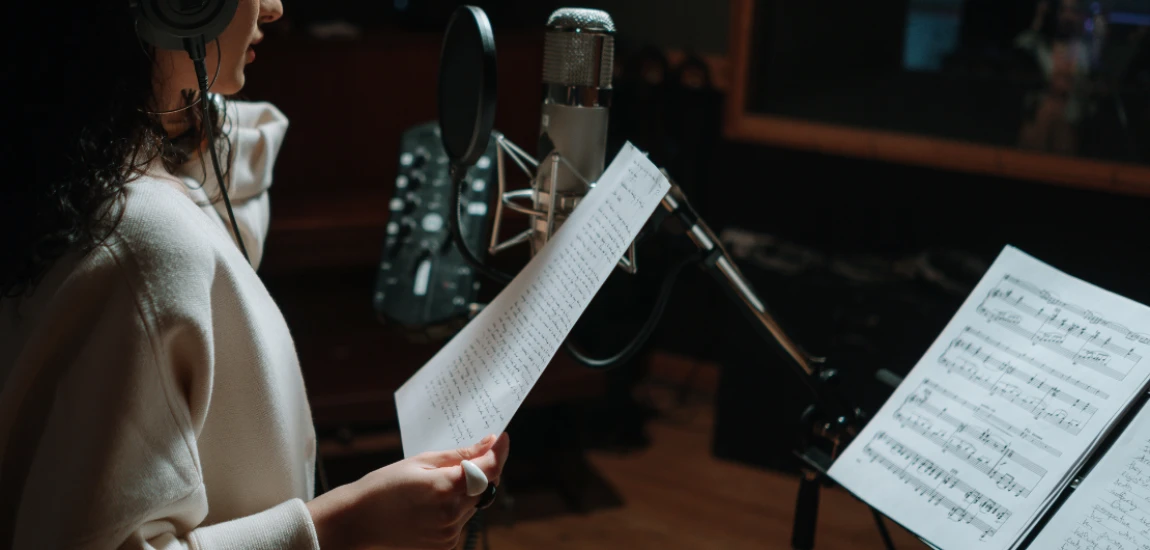Soundtrack First: How Music Is Shaping What We Watch

When you think about your favorite movie or TV show, chances are the soundtrack plays a big part in why it stuck with you. From Stranger Things reviving Kate Bush’s “Running Up That Hill” to Euphoria shaping Gen Z’s playlists, music has become more than just background noise—it’s a driving force behind what we watch. In today’s entertainment landscape, the phrase “soundtrack first” captures a growing truth: music isn’t just supporting stories, it’s shaping them.
In this blog, we’ll explore how music influences content choices, audience emotions, industry marketing strategies, and even the types of stories that get greenlit.
The Historical Role of Soundtracks in Storytelling

Music has always been intertwined with film and television. Long before today’s viral hits, soundtracks were used to heighten emotion, set tone, and leave lasting cultural impressions.
Iconic Film Scores That Defined Generations
From John Williams’ Star Wars theme to Hans Zimmer’s Inception score, soundtracks helped define the cinematic experience. These compositions didn’t just accompany films—they became part of cultural identity.
Music as Emotional Shortcuts
Soundtracks serve as emotional guides, shaping how audiences interpret scenes. A swelling orchestral score tells us to feel awe, while a haunting piano melody signals tragedy.
The Shift from Background to Foreground
While scores once played in the background, popular music integration in films like Saturday Night Fever or The Bodyguard proved that soundtracks could dominate charts as well as theaters.
The foundation laid in earlier decades paved the way for today’s soundtrack-first approach, where music can dictate a project’s success before it even airs.
The Rise of the Soundtrack-First Strategy

Today, streaming platforms and studios often design shows and films around music. Instead of soundtracks following visuals, visuals increasingly follow soundtracks.
Music as Marketing
Songs are now part of pre-release campaigns. A well-placed single can spark social media buzz before audiences know the plot. For instance, when Euphoria drops new music, it becomes as much of an event as the show itself.
Sync Licensing Boom
Sync deals—licensing songs for media—have exploded in demand. Emerging artists gain global fame overnight when their songs are featured in hit shows, while producers secure built-in fanbases.
Algorithm Meets Playlist Culture
Streaming services analyze listening trends to predict what soundtracks will resonate. Playlists on Spotify or Apple Music double as marketing arms for shows, creating seamless cross-promotion.
The soundtrack-first mindset ensures that music drives discovery as much as storylines.
TikTok, Virality, and the New Age of Soundtracks

No platform demonstrates soundtrack power better than TikTok. Viral songs don’t just shape music charts—they shape what people watch.
Reviving Old Classics
When Stranger Things used Kate Bush’s 1985 hit, TikTok made it viral again, catapulting both the song and the show into renewed global relevance.
Soundtrack as Meme Culture
Clips paired with music become memes, extending a show’s cultural reach. Catchy or emotional songs drive rewatchability, as fans return to moments that went viral.
Gen Z and the Playlist Generation
For younger audiences, music is often the hook. They discover shows through TikTok soundbites before ever watching an episode, proving how viral soundtracks become entry points into storytelling.
The TikTok era has turned soundtracks into both marketing and community-building tools, amplifying cultural resonance.
How Soundtracks Shape Emotional Engagement

Soundtracks don’t just make shows popular—they make them unforgettable by forging emotional bonds between audiences and stories.
Memory and Nostalgia
Music is tied closely to memory. A familiar song in a show can evoke nostalgia, making viewers feel connected before the first scene unfolds.
Character and Theme Association
Just as Game of Thrones has a signature theme, individual characters or moments often gain musical motifs. These recurring cues deepen emotional investment.
Amplifying Drama and Intensity
Soundtracks set pacing and mood. A tense silence followed by a sudden beat drop can make a scene unforgettable. In horror, thrillers, and dramas, music is often the silent co-star.
Without strong soundtracks, many shows would lose their ability to linger in cultural memory.
The Business of Soundtrack-Driven Content

Behind the artistry lies an industry reaping benefits from soundtrack-first strategies.
Revenue from Soundtrack Sales
From Frozen’s “Let It Go” to Black Panther: The Album, soundtracks often become chart-topping, Grammy-winning hits in their own right.
Branding and Cross-Promotion
Partnerships between studios, artists, and streaming platforms maximize exposure. A single track might appear in trailers, ads, and Spotify playlists simultaneously.
The Artist–Studio Symbiosis
Emerging musicians gain massive audiences from soundtrack features, while shows gain authenticity and freshness by tapping into new talent.
Soundtrack-first isn’t just creative—it’s a powerful marketing and revenue engine.
Case Studies: Shows and Films Defined by Soundtracks

Several recent projects highlight how crucial soundtracks are to storytelling and success.
Euphoria and Modern Soundscapes
The HBO hit doesn’t just feature music—it curates it. Its soundtrack became a cultural movement, influencing fashion, mood, and online communities.
Stranger Things and Nostalgia Marketing
By weaving ‘80s classics into its DNA, the show creates a nostalgic emotional core while reviving older artists for new generations.
Guardians of the Galaxy and the Mixtape Effect
James Gunn’s use of ‘70s hits elevated the franchise, making its soundtrack as iconic as its visuals.
These examples show how soundtrack-first thinking can define entire franchises.
The Future of Soundtrack-First Entertainment

As media evolves, so will the role of soundtracks. Future entertainment may be shaped as much by playlists as scripts.
Interactive and Personalized Soundtracks
With AI-driven personalization, viewers could one day choose custom soundtracks for shows, making the experience more immersive.
Globalization of Music in Media
Non-English songs are increasingly appearing in international hits (Squid Game’s soundtrack is a prime example), reflecting music’s ability to cross cultural barriers.
Music-Led Story Development
Studios may greenlight projects specifically around trending songs or genres, letting music dictate storylines and settings.
The soundtrack-first era is only beginning, and the fusion of music, storytelling, and technology promises even more innovation.




